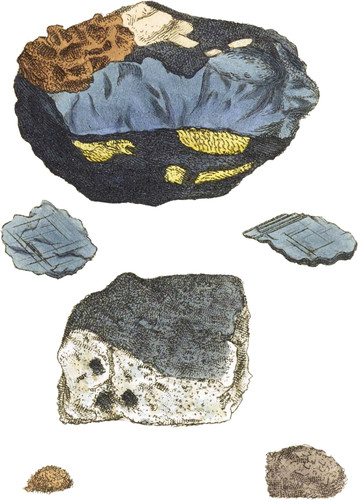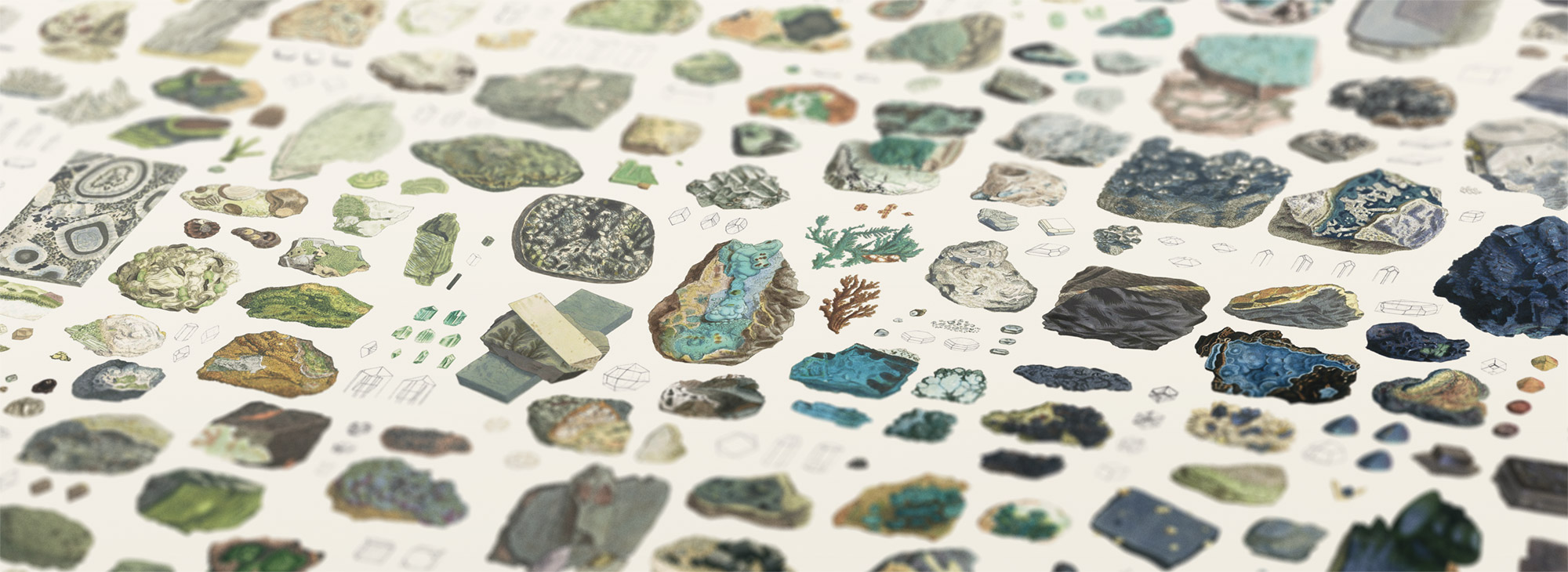 Enlarge
Enlarge
British Mineralogy
Foliated Oxide of Iron
- Class 3. Metals.
- Order 1. Homogeneous.
- Gen. 7. Iron.
- Spec. 3. Oxide of Iron.
- Syn.
- Plumbaginous or Micaceous Iron Ore. Kirw. v. 2. 184.
- Eisen-Glimmer. Emmerl. v. 2. 306.
- Fer oligiste écailleux. Haüy, v. 4. 45.
This curious variety of iron ore is found in Wales, Scotland, Cornwall and other places. It has the appearance of iron with somewhat of the gloss and blakish grey tint of black lead, occasionally with the blue, purple, and sometimes the other iridescent colours. It is more or less flat, irregular or undulating, in very thin broad laminæ, one over another. They have two sets of parallel lines crossing each other obliquely, and forming the palin of a rhomboid. it is found in rocks of quartz, and the upper figure has some yellowish mica about it. The right and left hand middle figures show the parallel lines crossing some fragments, and the undulating structure. It is not attracte by the magnet. it is very brittle, and easily breaks into small irregular fragments.
The sparkling middle figure is know by the common name of glimmer, or scaly iron ore, and often accompanies the above, as well as the black and red hæmatites. It is blackish or red occasionally. The little bright faces of the scales reflect the light with great brilliancy, particularly by candle light, sa the figures will show with the utmost nicety, as the very substance was of necessity used for its own representative. The biggest figure is among broken quartz or rock, covering the surface or filling little hollows in a scattered manner. The lower figures are aggregated bundles, which are often found much larger: they have sometimes a tendancy to crystallize in small rhombs, but I have not yet seen them large or distinct enough to be measured. The angles appear to be the same as in the foliated part above, to which the lower evidently belongs. It is found in Devonshire, whence we received it by favour of Colonel Montague and Rev. A. Neck. The same was also sent from Scotland by Mr. Winch. The upper one was received from Wales, by favour of the Rev. Mr. Williams.

